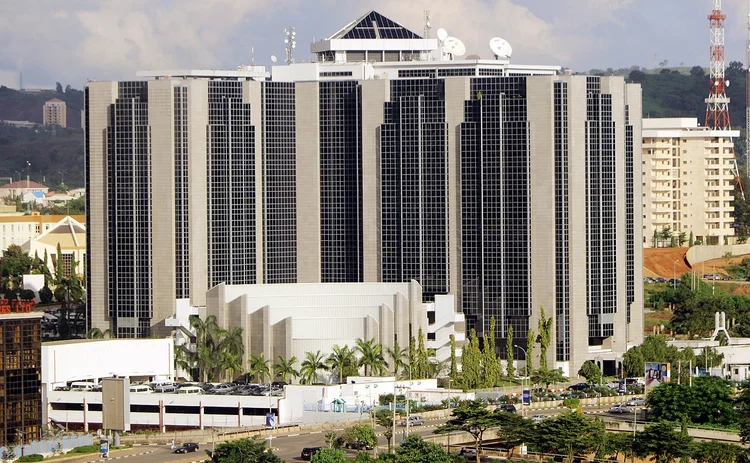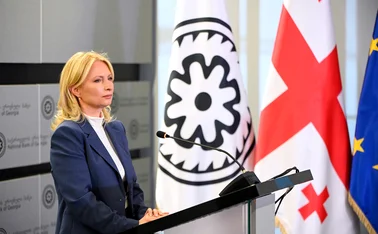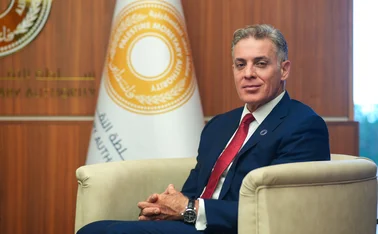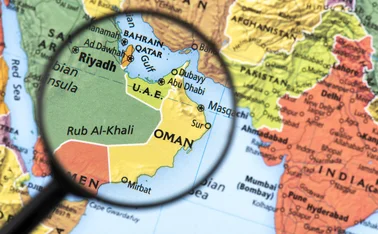
Nigerian senate confirms governor and deputies
President’s nominees took over as acting officials last week after former deputy governors resigned

The Nigerian president’s nominee for central bank governor has been confirmed in the role after the acting head and his deputies all resigned.
On September 22, the Central Bank of Nigeria (CBN) announced acting governor Folashodun Shonubi and all other deputy governors had stepped down from their posts. It said Olayemi Cardoso, who had been nominated for the governor’s role by recently elected president Bola Tinubu, had become acting head.
Media reported on September 26 that the Nigerian senate unanimously confirmed Cardoso as governor, alongside the president’s four nominated deputy governors. The move appears to show Tinubu has made changing the leadership of the central bank one of his priorities.
He nominated Emem Nnana Usoro, Muhammad Sani Abdullahi, Philip Ikeazor and Bala Bello as deputy governors. All will serve five-year terms, and may be re-appointed once.
Tinubu became president on May 29. He swiftly moved against the central bank’s then-governor Godwin Emefiele, who was suspended from office within weeks of the inauguration and subsequently arrested by the security services.
Shonubi then became acting governor, and was the only one of the CBN’s deputy governors to be near the end of their term. The Nigerian senate had confirmed two of the recently resigned deputy governors to new terms only last December.
Emefiele resigned in August. He is currently charged with unlawfully possessing a firearm, while security services say they want to bring further charges against him. There is an ongoing investigation into the central bank, ordered by the president.
The CBN has also postponed its next monetary policy meeting, originally scheduled for September 25 and 26, saying it would announce the new date “in due course”.
The central bank has raised rates at the last eight meetings, from 11.5% to the current level of 18.75%. The official year-on-year inflation rate reached 25.8% in August, the eighth successive month in which it had risen.
Cardoso outlines changes
Cardoso told the Nigerian senate the central bank faced “numerous” challenges – a sign he may change many of Emefiele’s policies. He mentioned “diminished institutional autonomy”, and the need to “revert to evidence-based monetary policy” and abandon currency and exchange regulations.
He promised to return the central bank on its “core mandate” of monetary policy and “there is need to pull the CBN back from direct development finance interventions into more limited advisory roles”. He said the latter could include working on financial inclusion, regulatory reform and developing new financial products and institutions.
Cardoso also said the central bank would need to create a greater separation between fiscal and monetary policy. The state borrowed heavily from the central bank under Emefiele. The day before Tinubu took office, the National Assembly raised the legal cap on borrowing from the central bank.
Controversial Emefiele
The central bank’s September 22 statement also acknowledged Emefiele had resigned, apparently the first time that it has done so. Emefiele’s economic policies, which included direct central bank financing of certain industries, were extremely controversial.
He attracted considerable opposition when he attempted to limit cash in circulation by replacing some denominations of Nigerian banknotes in 2022. He also announced he would run for the presidential nomination of the All Progressives Congress last year, but abandoned the plan after a public outcry.
Emefiele installed a system of capital controls, leading firms to complain that it was difficult to obtain foreign exchange and repatriate earnings from Nigeria. Last week, finance minister Wale Edun said the CBN owed $6.8 billion in foreign exchange to various counterparties.
As acting governor, Shonubi oversaw the introduction of a single official exchange rate, replacing Emefiele’s system of multiple rates. In recent weeks, the Nigerian currency has depreciated sharply on unofficial markets, reaching about 1,000 to the US dollar by September 26, down from about 750 to the dollar in June. The official rate is about 780 to the dollar.
Only users who have a paid subscription or are part of a corporate subscription are able to print or copy content.
To access these options, along with all other subscription benefits, please contact info@centralbanking.com or view our subscription options here: http://subscriptions.centralbanking.com/subscribe
You are currently unable to print this content. Please contact info@centralbanking.com to find out more.
You are currently unable to copy this content. Please contact info@centralbanking.com to find out more.
Copyright Infopro Digital Limited. All rights reserved.
As outlined in our terms and conditions, https://www.infopro-digital.com/terms-and-conditions/subscriptions/ (point 2.4), printing is limited to a single copy.
If you would like to purchase additional rights please email info@centralbanking.com
Copyright Infopro Digital Limited. All rights reserved.
You may share this content using our article tools. As outlined in our terms and conditions, https://www.infopro-digital.com/terms-and-conditions/subscriptions/ (clause 2.4), an Authorised User may only make one copy of the materials for their own personal use. You must also comply with the restrictions in clause 2.5.
If you would like to purchase additional rights please email info@centralbanking.com







